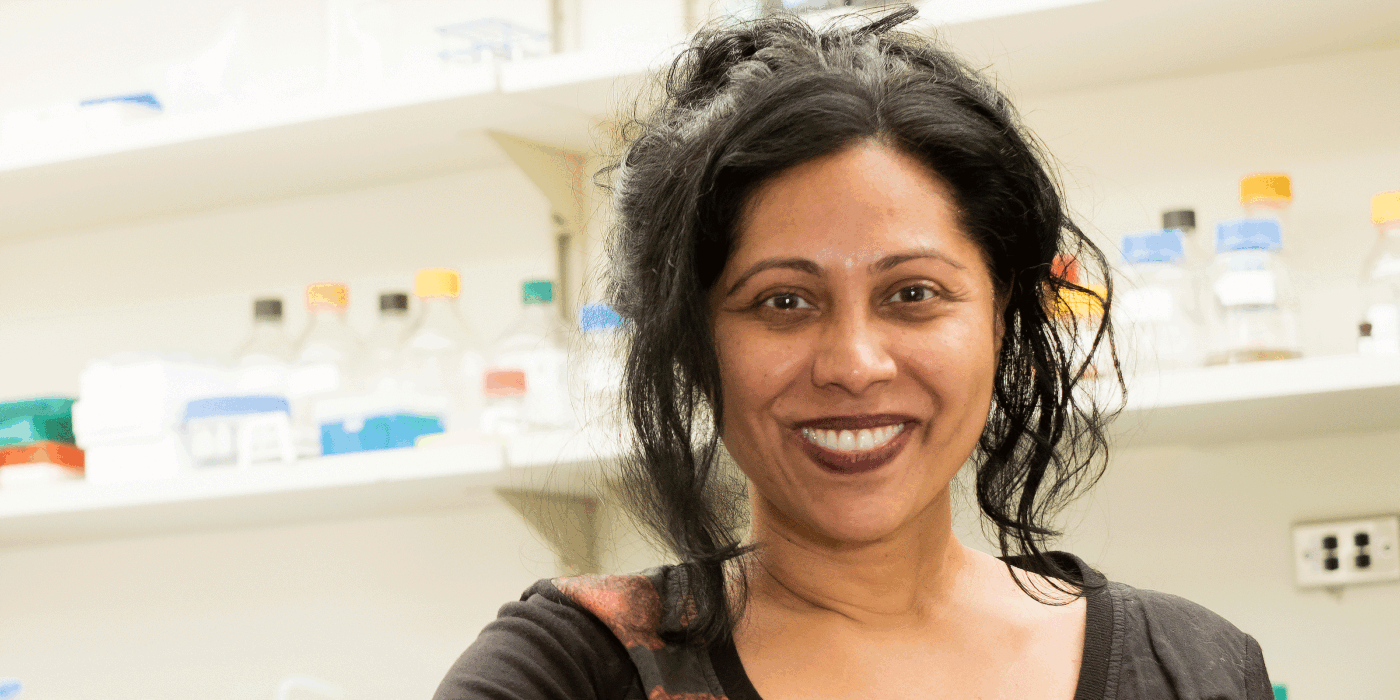Elizabeth Campbell, Ph.D.
Corinne P. Greenberg Women & Science Professor
Transcription is a universal biological process and a prime target for therapeutics against pathogens. The Campbell lab operates at the interface between biochemistry, structural biology, and microbial pathogenesis. They focus on the regulation of gene expression and RNA synthesis in two deadly pathogens, Mycobacterium tuberculosis and coronaviruses, to illuminate fundamental mechanisms and contribute to drug development.
What are the molecular mechanisms governing the highly regulated process of gene expression, particularly in human pathogens? Can understanding these mechanisms be leveraged to fight infectious diseases?
The Campbell laboratory is investigating a fundamental biological question: How are genes in pathogens expressed? The information encoded in DNA is a blueprint for expressing proteins, and transcription is the process by which RNA molecules are synthesized from the DNA template. The lab studies transcription in the deadliest infectious agent: the bacterium Mycobacterium tuberculosis (Mtb). Mtb causes tuberculosis (TB) and is responsible for more annual deaths than any other single infectious agent. By studying transcription in Mtb, they are establishing a new model bacterium that has diverged significantly from well-studied model bacteria.
Campbell’s team combines biophysical techniques, such as cryo-electron microscopy, and biochemical techniques with microbiology to study transcription. They also integrate extensive clinical data with lab findings and collaborate with Jeremy Rock’s lab, which works directly with the pathogens. This approach allows them to gain comprehensive insight into the evolving landscape of transcription in clinics worldwide. The Campbell lab has discovered new mechanisms of bacterial transcriptional regulation specific to Mtb, providing a framework to understand the control of mycobacterial transcription initiation by essential transcription factors. Their current goals include understanding the molecular details and regulation of all the steps in the transcription cycle and how it coordinates with other cellular processes such as translation. Additionally, they focus on the structural and functional characterization of clinically relevant RNA polymerase (RNAP) inhibitors. Their ongoing work highlights that this approach is viable for precision targeting of antibiotic-resistant bacteria and is influencing new approaches to treat TB.
The Campbell lab also studies transcription in coronaviruses (CoVs), the viruses responsible for COVID-19. The pandemic highlighted the need to understand the molecular mechanisms governing viral replication. CoVs require an unusually large collection of RNA synthesizing and processing enzymes to express and replicate a 30 kb genome. Partnering with Seth A. Darst and Charles M. Rice, they are revealing the molecular interactions that allow these nucleic acid processing enzymes to coordinate and enable both gene expression and replication in CoVs.
The group’s work holds significant clinical implications, as transcription is a validated target for clinical inhibitors used to treat diseases caused by mycobacteria (including TB, leprosy, and hospital-acquired infections) and coronaviruses. By uncovering details of transcription in these pathogens, they are revealing novel paradigms with unprecedented molecular details, while laying the groundwork for innovative therapeutic strategies. While the current focus is on fundamental principles, their work aims to leverage basic science into translational research.
Campbell is a faculty member in the David Rockefeller Graduate Program and the Tri-Institutional M.D.-Ph.D. Program.
